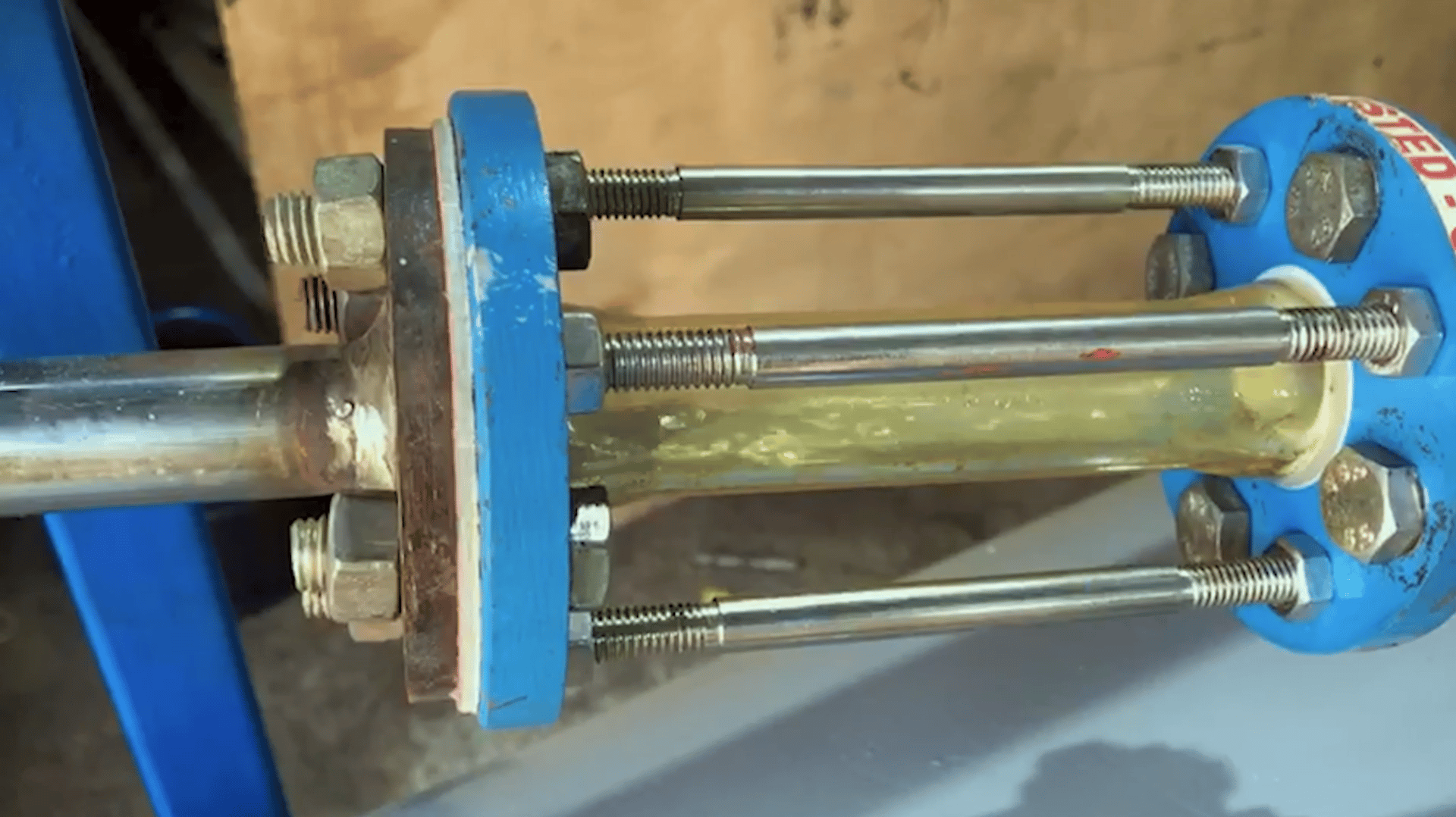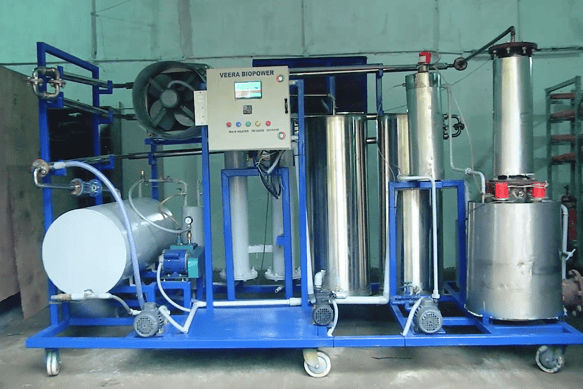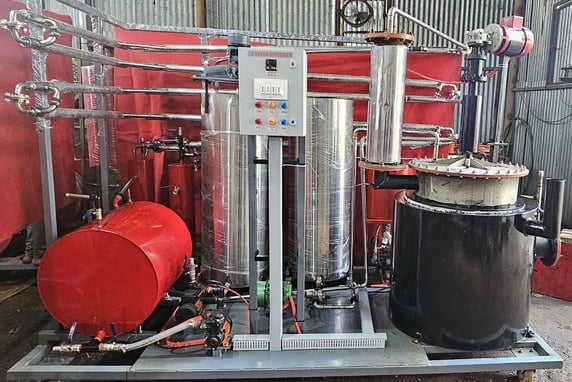
Transforming Waste into Value
Waste oil to diesel conversion technology is not just a sustainable solution; it’s a practical and profitable way to reduce environmental impact while also cutting costs for businesses. This website will guide you through how waste oil can be efficiently recycled into usable fuel, revolutionizing the way industries handle their waste.
The Problem with Waste Oil
Waste oil is one of the most dangerous pollutants when it’s not disposed of correctly. Every year, massive amounts of used oil are improperly disposed of, either dumped into the ground or incinerated, causing severe environmental damage. Waste oil is classified as hazardous material because it contains a range of contaminants, including heavy metals, toxins, and combustion by-products that are harmful to soil, water, and air. When improperly handled, even small amounts of waste oil can contaminate millions of gallons of water, impacting ecosystems and human health. Beyond environmental concerns, the economic costs of managing this waste continue to rise, creating a burden for businesses and industries across sectors. Now more than ever, industries need a sustainable and profitable solution to manage their waste, and that’s where waste oil to diesel conversion comes into play.






Economic Benefits of Recycling Waste Oil
The economic advantages of converting waste oil into diesel are twofold. First, businesses can save money by reducing their waste disposal costs. Waste oil is expensive to dispose of due to its classification as hazardous material, and traditional methods of disposal — such as incineration or sending it to landfills — come with hefty environmental fees. Recycling waste oil into diesel eliminates the need for these costly disposal methods. Second, industries that adopt this technology can produce their own fuel at a fraction of the cost of purchasing new diesel. This can result in significant cost savings, especially for companies that rely heavily on diesel-powered machinery or transportation fleets. Additionally, companies can sell surplus recycled diesel, creating a new revenue stream and further improving their financial outlook. Waste oil to diesel conversion is an investment that pays for itself in both short-term savings and long-term sustainability.
- Heavy duty machineries
- Powering generators, boilers
- automobiles
- construction and agricultural industries
Applications of Recycled Diesel
The economic advantages of converting waste oil into diesel are twofold. First, businesses can save money by reducing their waste disposal costs. Waste oil is expensive to dispose of due to its classification as hazardous material, and traditional methods of disposal — such as incineration or sending it to landfills — come with hefty environmental fees. Recycling waste oil into diesel eliminates the need for these costly disposal methods. Second, industries that adopt this technology can produce their own fuel at a fraction of the cost of purchasing new diesel. This can result in significant cost savings, especially for companies that rely heavily on diesel-powered machinery or transportation fleets. Additionally, companies can sell surplus recycled diesel, creating a new revenue stream and further improving their financial outlook. Waste oil to diesel conversion is an investment that pays for itself in both short-term savings and long-term sustainability.
Economic Benefits of Recycling Waste Oil


Environmental Benefits of Recycling Waste Oil
The environmental impact of converting waste oil to diesel cannot be overstated. This process directly reduces the amount of waste oil that ends up in landfills or incinerators, preventing the contamination of soil and water supplies. Waste oil recycling also plays a critical role in reducing greenhouse gas emissions. By converting waste oil into diesel, we reduce the need to extract and refine new fossil fuels, which are some of the largest contributors to global carbon emissions. Additionally, the distillation process itself is designed to operate with minimal emissions, making it an environmentally friendly alternative to traditional oil refining methods. Businesses that adopt waste oil to diesel technology not only contribute to a cleaner environment but also demonstrate their commitment to sustainability, which can enhance their reputation and compliance with regulatory standards.


Social Benefits of
Recycling Waste Oil
Recycling waste oil into diesel has significant social benefits that extend beyond just economic and environmental gains. First, it helps to create healthier communities by reducing the risk of environmental contamination from improper waste oil disposal. When waste oil is dumped into landfills or waterways, it can cause severe pollution, threatening public health and leading to long-term environmental degradation. By converting waste oil into usable diesel, communities are safeguarded from the harmful effects of toxic spills and groundwater contamination, promoting cleaner and safer living environments. Furthermore, industries that invest in sustainable practices like waste oil recycling tend to foster innovation and environmental stewardship, creating a culture of responsibility that can inspire future generations to prioritize sustainability. This not only benefits businesses but also contributes to societal well-being, helping communities to thrive in a greener, cleaner, and more responsible world.


Why Choose Us?
To successfully implement waste oil to diesel conversion, businesses need reliable, high-quality technology that they can depend on. Our distillation systems are designed with efficiency and sustainability in mind, providing businesses with the tools they need to recycle waste oil into valuable diesel fuel. Our proven track record in the waste-to-energy sector, combined with our cutting-edge technology, ensures that your business will be equipped to meet the growing demand for alternative fuel sources. With a commitment to innovation, quality, and sustainability, we are here to help you turn your waste into value.




Get in touch
Share with visitors how they can contact you and encourage them to ask any questions they may have.


